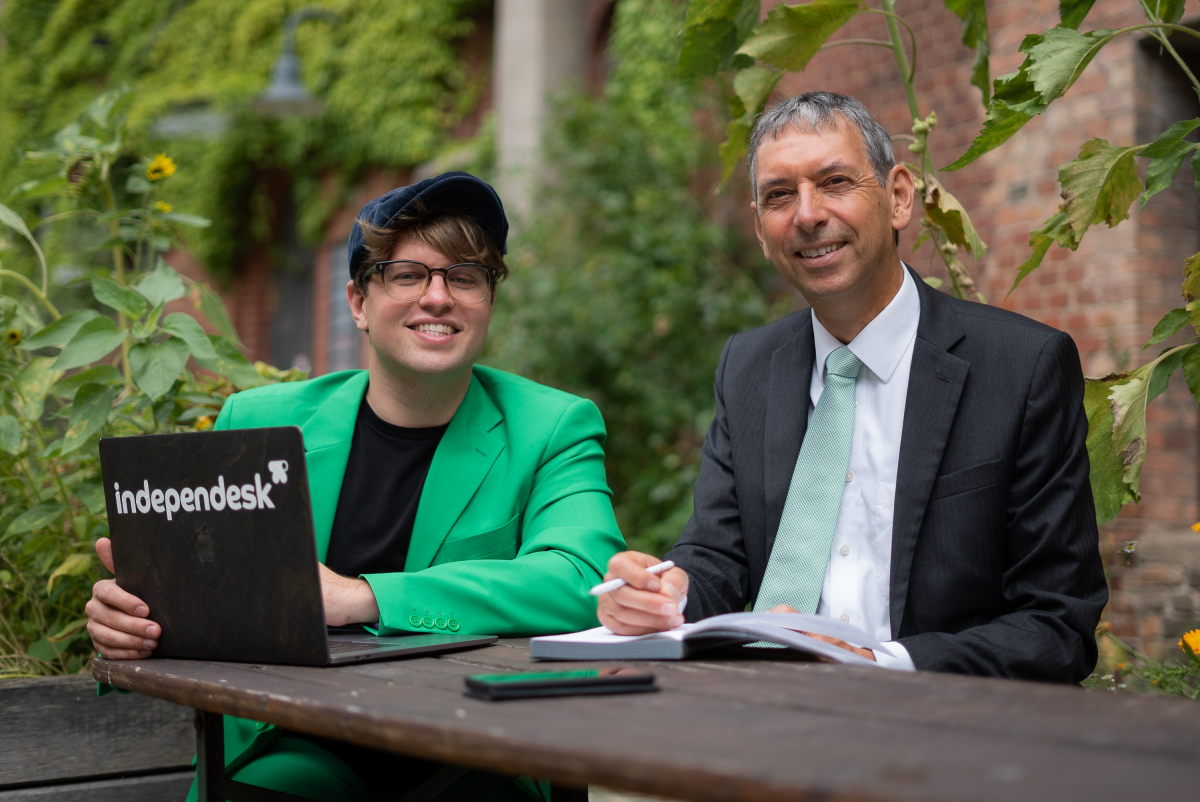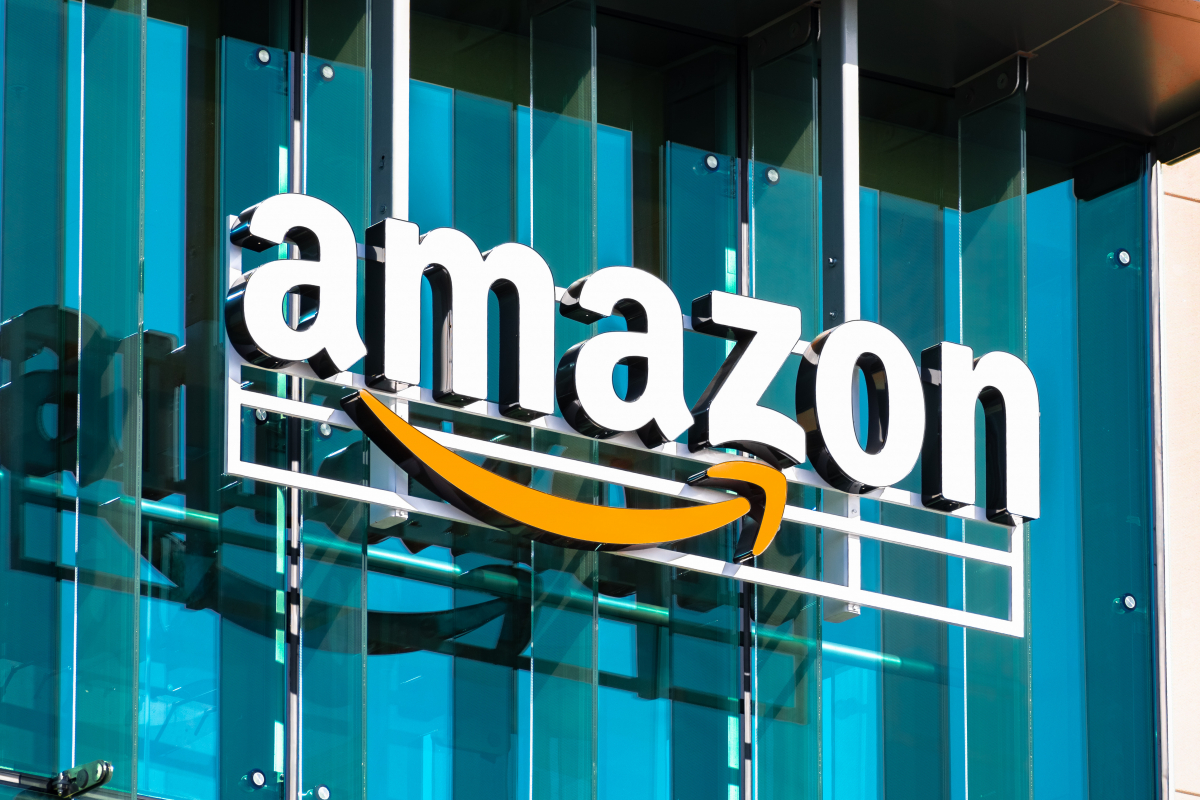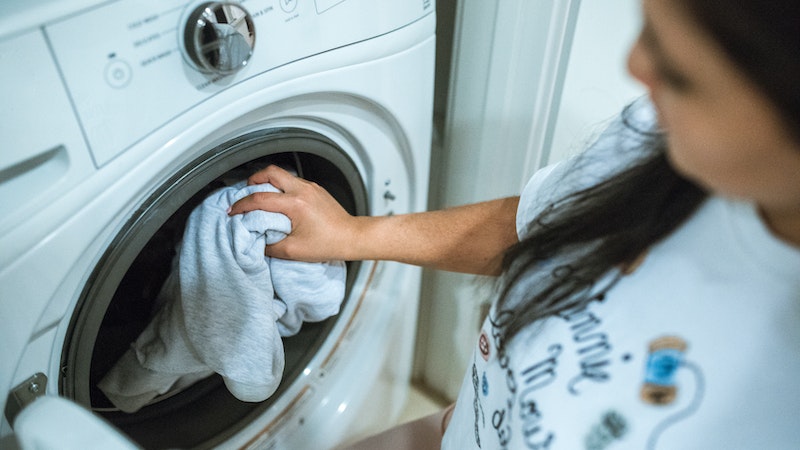Interview with Independesk founder Karsten Kossatz
With his startup Independesk, Karsten Kossatz appears in episode three of the tenth season “Die Höhle der Löwen” – the background to it is available here.
In a bright green suit, the Berlin entrepreneur presents his concept to the lion: With desks that can be rented flexibly throughout Germany, journeys to work are to be reduced and the social standing of hybrid work concepts improved. T3n met the founder for a conversation back in October 2020, when Independesk was still in its infancy. Since then, a lot has happened in the company, which mainly wants to differentiate itself from other providers in terms of flexible booking – what exactly has changed and how it came to appearing in the Vox startup forge, the 29-year-old explains in an interview.
t3n: Mr. Kossatz, why did you want to work with Independesk in “Die Höhle der Löwen”?
Karsten Kossatz: I believe that big ideas need attention and partners who have what it takes to make a company big. And at the lion’s den you have both. You get a lot of attention, so a lot of people tune in and great investors who are entrepreneurs themselves and have experience with how to make companies big. Or rather, I don’t always want to be big on this, that always sounds to me as if I really wanted the corporation. For me, it’s about having a relevant impact. That we stop commuting to work every day, only commuting where it is necessary. Nowadays, nobody needs to drive there for 25 minutes to sit in their office and drive back in the evening. This is simply no longer necessary, and these are routines that we have to break down, that is a mindset that we have to change. And you don’t change a mindset by having a website and waiting for someone to come. You change a mindset by talking about it again and again and by making public appearances like this.
t3n: So the decision was made that you would be part of the show – how do you actually prepare for such an appearance?
Karsten Kossatz: You do your homework when it comes to knowing and being able to present the numbers and the business model. You deal very intensively with the big topic of flexible, hybrid work, with your own goals, with your own vision, it is super important that you can convey them well and make them understandable. And then it’s really all about pitching your idea calmly and convincingly.
t3n: Did you have a wish-lion or a wish-lioness in the run-up to the show?
Karsten Kossatz: Yes, in any case. So there are actually some of them that I find quite exciting, but actually my dream lion was Carsten Maschmeyer, because he is well versed in platform business and the scaling of business models. And especially if you want to create an impact, you need someone who knows how big things are, because the processes are then suddenly completely different, and also the internal cooperation, how to build teams and so on. I think that is where Carsten Maschmeyer has the most experience of all.
Carsten Maschmeyer at the presentation of Independesk. (Photo: RTL / Bernd-Michael Maurer)
t3n: When t3n presented Independesk some time ago, the company was still relatively early. What has happened since then?
Karsten Kossatz: Our app went live about a year ago. It started really well, and then there was a lockdown of six months and a lot of home office duties. Not the ideal starting conditions for a startup like us. Nevertheless, the fact that the home office topic was once again present and the company have tried it out for such a long time is actually now definitely a driver for us in the long term and is really good. We can see that all companies are in great need of hybrid concepts at the moment. And in fact, we are constantly developing our strategy in the direction of companies, which means that we now also have company accounts where companies can create accounts for their employees, who can then book a productive place of work in their area via Independesk.
That works pretty well, in some cases it is also used by companies to track their own space capacities and to see how many employees are in the home office, how many are in the office, how many are in third-party locations, so how many want benefits from Combine home office and the advantages of office by simply looking for an office nearby.
The company component is getting bigger and bigger, and we will soon be launching a large management platform. This means that in the future the HR managers will also be able to see exactly “where is my team, who is where”, and the property managers can analyze “how much we can shrink in terms of office space or how maybe we have to reorganize it ”. Reorganize because there will simply be a lot more interaction in the office when you meet in the office. And that is super exciting because we are currently developing it with our finger on the pulse, always adapted to requirements.
t3n: Not only in terms of alignment, but also in terms of staffing, something has changed in the meantime, right?
Karsten Kossatz: There are now eight of us and we also have a UX team that increases the user experience. Interviews are carried out on an ongoing basis so that we can simply get a feel for what the need is. That is super important – at least as important is that I am no longer the founder of Independesk with Erik Müller, but with Uwe Weinreich. Uwe Weinreich coached us last year and has been fully involved since the beginning of April and takes over the product part, i.e. the app part. He takes care of the app and I take care of the marketing, so our roles are in the management. And that works really well. So we are very complementary, both in terms of our competencies and in terms of our nature. He is a very experienced IT entrepreneur, has already set up a number of startups, for me it’s my first big startup. That means, it’s a lot of fun and there is a lot of energy in it, especially in the team.
t3n: And how did the number of users develop in the last year?
Karsten Kossatz: We currently have around 2,000 registered users and we add many more every day. Now, of course, we are already noticing through the preliminary reporting on Vox that more and more interested parties are joining us. And on the space side, last year we were particularly relevant in Berlin, back then we had around 100 spaces, and now we have over 800 spaces all over Germany.
t3n: How has the company been financed so far – have there been investors?
Karsten Kossatz: We were completely self-financed from the start. I put a lot of money into it, actually everything I had saved in the last ten years. Other people might invest in some fancy car or an apartment, I did that with my own idea. Because I just really believe in it, and it is important to me that we make a difference in the world. So I don’t want to somehow have a nice idea that a few users then have, but I really want to change something fundamentally, and that’s why I put everything in there that I had saved up. And then I went to the lion’s den – and a bit has happened since then.
What exactly Kossatz means by this final sentence, you can read here after the broadcast has been broadcast.



